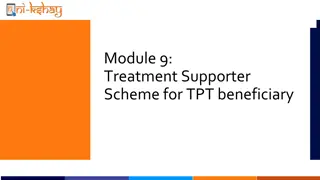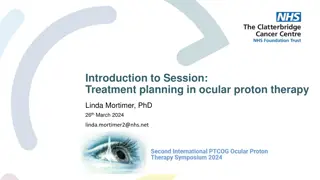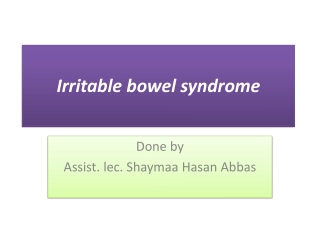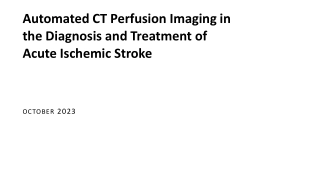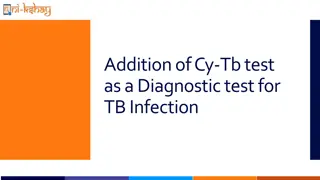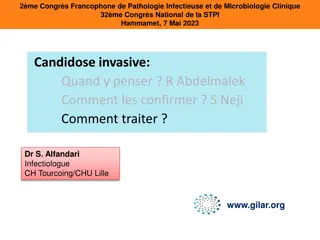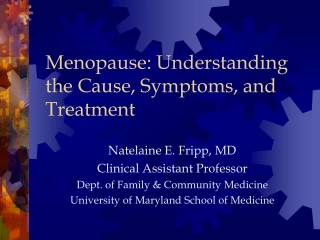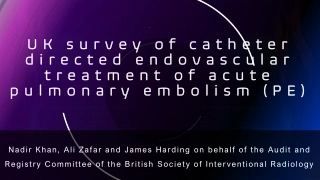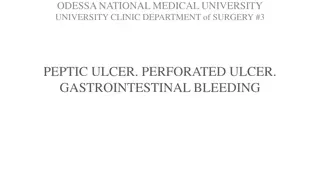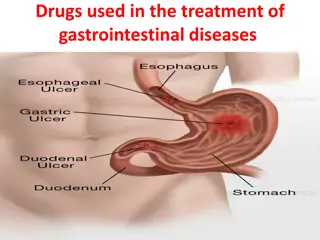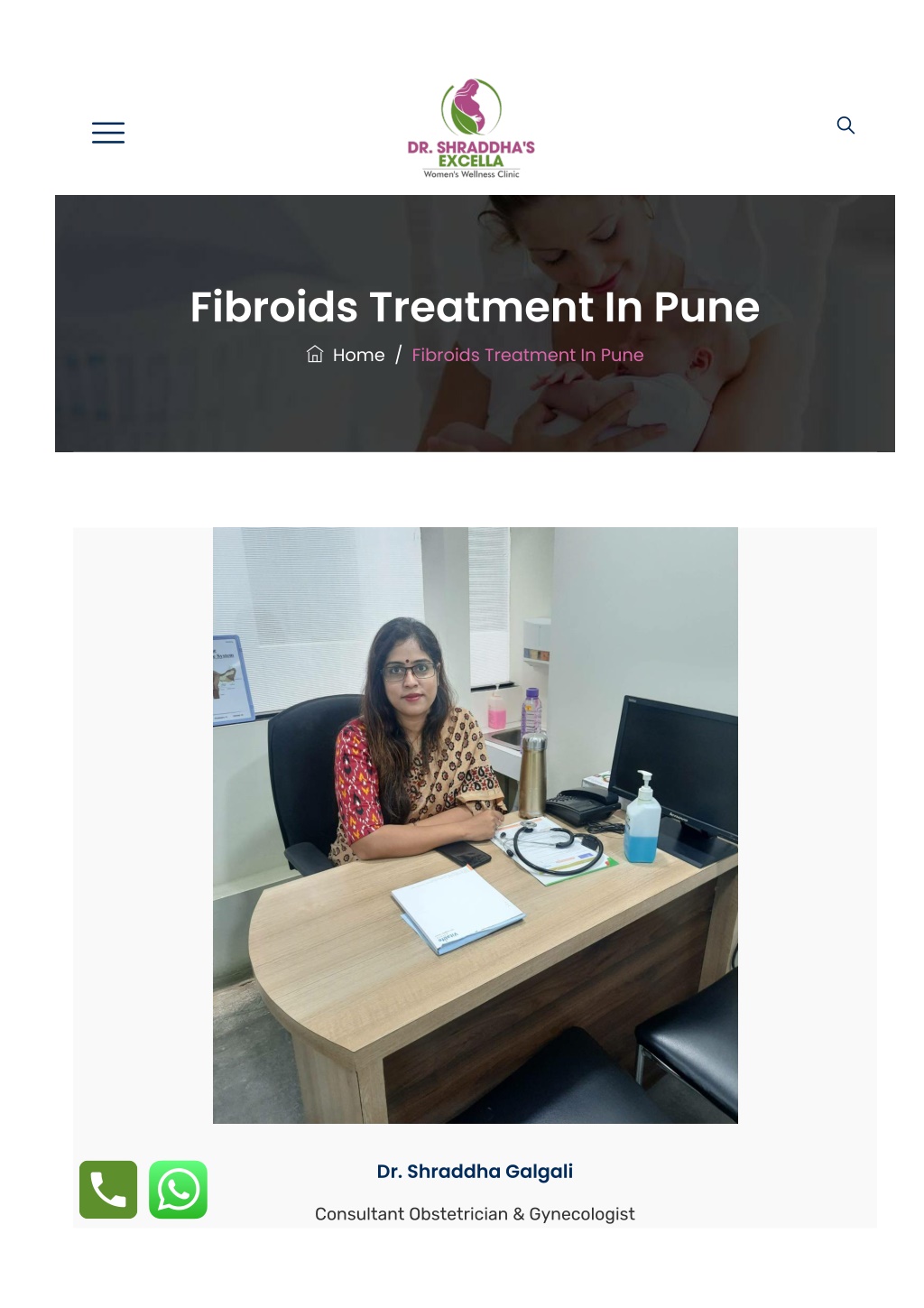
Fibroids Treatment In Pune - Dr Shraddha Galgali
Are you suffering from uterine fibroids? Looking for expert treatment? Looking For Fibroids Treatment in Pune? Youu2019re at the right place.nDr. Shraddha Galgali is a leading and qualified gynecologist in Punwale, PCMC, Pune, specializing in treating various gynecological conditions and performing surgeries. she is also provide Fibroids Treatment in Pune.nnDr. Shraddha Galgali is an experienced female gynecologist in Wakad Pune who can provide Uterine fibroid surgery and further tratment.
- Uterine Fibroids
- Uterine Fibroids Treatment in Punawale
- Pune
- Best Gynecologist in Punawale
- Pune
- Laparoscopic Surgery in Pune
- Infertility Treatment in Punawale
- Pune
- Pregnancy Care clinic in Pune
- PCOS / PCOD Treatment in Pune
Download Presentation
Please find below an Image/Link to download the presentation.
The content on the website is provided AS IS for your information and personal use only. It may not be sold, licensed, or shared on other websites without obtaining consent from the author. Download presentation by click this link. If you encounter any issues during the download, it is possible that the publisher has removed the file from their server.
Presentation Transcript
Fibroids Treatment In Pune Home / Fibroids Treatment In Pune Dr. Shraddha Galgali Consultant Obstetrician & Gynecologist
Are you suffering from uterine fibroids? Looking for expert treatment? Looking For Fibroids Treatment in Pune? You re at the right place. Dr. Shraddha Galgali is a leading and quali?ed gynecologist in Punwale, PCMC, Pune, specializing in treating various gynecological conditions and performing surgeries. she is also provide Fibroids Treatment in Pune. Dr. Shraddha Galgali is an experienced female gynecologist in Wakad Pune who can provide Uterine ?broid surgery and further tratment. What are uterine fibroids? Uterine ?broids, or myomas or leiomyomas, are non-cancerous tumours that develop in or on the walls of the uterus. They are the most common gynaecological tumour, a?ecting many women of reproductive age. Fibroids can be in size from a small seed to a large melon. Uterine ?broids can cause pain and excessive, irregular vaginal ?ow, among other symptoms. A person may have no signs and be unaware of ?broids. The signs usually determine therapy for ?broids. Where do fibroids grow? Fibroids can begin inside or on the uterine walls. Fibroids can happen as a solitary knob or as bunches. The size can go from 1 mm to 20 centimeters (8 inches) or more. In speci?c cases, ?broids can turn out to be huge to the point that they extend the uterus, giving the presence of critical weight gain or a pregnancy-like stomach. A few ?broids in the submucosa or subserosa might be pedunculated. It means they are suspended from a stalk inside or outside the uterus. What are the different types of fibroids? Dr. Shraddha Galgali said various kinds of ?broids exist, each with di?erent growth patterns. While some ?broids enlarge within the uterus, others form around it. Here are some common types: Intramural ?broids: These are common among women and grow within the muscular walls of the uterus. They can become large and stretch the womb, causing concern despite their common occurrence. Subserosal ?broids: These typically grow outside the uterus, referred to as serosa. They can grow quite large, causing the womb to appear greatly enlarged, especially on one side. Though not usually critical, it s advisable to seek advice from Dr. Shraddha Galgali.
Submucosal ?broids: These grow within the middle muscle layer or myometrium of the uterus. However, they are less typical compared to other types of ?broids. Are fibroids common? Yes, ?broids are very common. The prevalence of ?broids varies among di?erent people, but it s calculated that up to 70-80% of women will develop ?broids at some point. However, 99% of ?broids are benign, meaning they are not cancerous. Fibroids can lead to e?ects such as excessive bleeding and reproductive issues. What are the Causes of fibroids? The reasons for ?broids are not surely known. Nonetheless, various variables add to their development, including: Hormones: Ovaries produce chemicals like progesterone and estrogen, which recover the uterine coating each feminine cycle and animate ?broid development. Family record: Fibroids are frequently hereditary. If your mom, sister, or grandma had ?broids, you are bound to foster them as well. Pregnancy: Pregnancy raises levels of estrogen and progesterone, improving the chance of creating ?broids during this period. What are the symptoms of fibroids? Dr. Shraddha Galgali explains some of the symptoms of ?broids: Heavy bleeding with blood clots during and after your periods Lower back pain or pelvic pain is yet another sign of ?broids Frequent urination Longer menstruation cycles Pain at the time of intercourse Swelling as well as growth in the abdomen. How are uterine fibroids diagnosed? A routine pelvic exam typically identi?es uterine ?broids. However, if the ?broids are small or deeply embedded in the uterus, they might not be felt during the exam. In such instances, imaging tests may be needed to diagnose ?broids. Pelvic ultrasound: This is the most generally used imaging technique for diagnosing ?broids. It delivers images of the uterus and ?broids using sound waves, allowing for measures of their size and location.
Saline infusion sonography (SIS): This test uses a transvaginal ultrasound test implanted into the vagina. A modest quantity of saline collection is infused into the uterus to improve the clearness of the ultrasound picture, assisting with imagining ?broids profound inside the uterus. Magnetic resonance imaging (MRI): This detailed imaging test provides data about the size, location, and structure of ?broids. MRI can also assess the blood supply to ?broids, aiding in therapy planning. Hysterosalpingography (HSG): This test examines the structure of the uterus and fallopian tubes by injecting a di?erent dye into the uterus through the cervix. The dye is visible on an X- ray, helping to identify abnormalities like ?broids. Hysteroscopy: This procedure involves inserting a thin, lighted instrument called a hysteroscope into the uterus through the cervix. It allows the gynecologist to directly view the inside of the uterus and any ?broids present. What are the treatments for fibroids? At Dr. Shraddha s EXCELLA Woman s Wellness Clinic, our experts curate personalized therapies depending on the severity of the signs, the size and location of the ?broids, and whether or not you desire to have children in the future. Common treatment strategies used by us include: Regular monitoring for ladies with asymptomatic ?broids and treating them if signs emerge or worsen. Medicines like birth control pills, progestin-releasing intrauterine devices (IUDs), and gonadotropin-releasing hormone (GnRH) agonists, to shrink ?broids and reduce pain. Surgery may be required if ?broids are causing serious signs or interfering with fertility. There are several surgical choices available, including: Myomectomy: A surgical technique that removes ?broids while leaving the uterus intact, making it an option for women who want to have children in the future. Hysterectomy: A surgical operation to remove the uterus that provides a permanent solution to ?broids but is not an option for women who want to have children in the future. Uterine ?broid embolization (UFE): It is a procedure used to treat Uterine Fibroids. An insigni?cantly intrusive therapy includes infusing minuscule particles into the blood conduits that supply blood to the ?broids, making them psychologist and passed on. When to see the Dr. Shraddha Galgali? You should meet Dr. Shraddha Galgali is the best Laparoscopic Surgery in Punawale, Pune for uterine ?broids if you are experiencing any of the following signs: Heavy menstrual bleeding Painful menstrual cramps
Pelvic pressure or pain Frequent urination Constipation Problem getting pregnant Can fibroids be prevented? There is no known way to prevent uterine ?broids, but women can reduce their risk by: Maintaining a healthy weight Eating a balanced diet rich in fruits, vegetables, and whole grains Keep Exercising regularly Stop smoking Getting normal clinical tests, including pelvic tests, to screen for ?broids and other gynecological issues. Book An Appointment: Overall, Dr. Shraddha s EXCELLA Woman s Wellness Clinic in Punawale, Pune is the best choice for Fibroid Removal Specialist treatment in the area. With their trained sta?, modern equipment, and dedication to quality care, patients can rest assured that they are in good hands. Whether you re located in Wakad, Hinjewadi or nearby, Dr. Shraddha Galgali o?ers Infertility Treatment in Punawale, Pune and she is the right choice for your fertility needs. Feel free to call us on 9923956515 for appointments and queries or book an online appointment. Dr. Shraddha s Excella Women s Wellness Clinic A202, 18 Longitude phase 1, Wing A Latitude Road, mall, near 18 LATITUDE, Punawale, Pimpri- Chinchwad, Maharashtra 411033 consult@drshraddhagalgali.com Phone : 992 395 6515 Excella Women's Clinic: 10:00 AM - 11:30 AM, 1:00 PM - 3:00 PM (By Appointments) & 7:00 PM - 9 PM
Vitalife Clinic, Baner: 11:30 AM - 12:30 PM & 5:30 PM - 6:30 PM Our Services Pregnancy Care Normal Delivery Consultation in Punawale High Risk Pregnancy Specialist In Punawale Sonography Cancer Screening Abortion Care Laparoscopic Surgery Hysteroscopy Infertility Treatment Google Map Location

